- Home
- Keith Douglass
Afterburn c-7 Page 3
Afterburn c-7 Read online
Page 3
As the pilot and the XO left the bridge, Tombstone wondered if Ecevit had been trying to deliver a message with his concern, perhaps an unofficial warning from people in the Turkish government or military who were unwilling to risk making an official one. More likely, Ecevit knew nothing specific beyond what everyone knew, that the Black Sea was a bomb with a short, lit fuse.
The officers and men of CBG-14 were under no illusions about the danger they faced inside the Black Sea. It was part of the duty of the U.S. Navy ― and the tradition ― to go in harm’s way.
This was something different, however. In the past, “going in harm’s way” meant stopping an enemy threat as far from the coasts of the United States as possible, but America’s role as high-tech policeman for the United Nations was threatening to change that. The Republic of Georgia offered no threat to the United States at all, not to her population, not to her trade or even to her foreign policy, nor did it matter to American policy which of several Russian factions might be in control of the country at any given moment.
Russia, of course, was still a threat; they still possessed ICBMS that could obliterate most of the cities of North America, and with the accelerated fragmentation of order it had become impossible to know which faction in the civil war possessed how many working nukes ― or to know where they were pointed. American peacekeeper operations in the Black Sea were certain to attract Russian attention for any of a number of reasons, and Tombstone wondered whether the UN mission was worth the inevitable clash.
Tombstone had been in the Navy long enough to know that the politicians back in CONUS too often either overestimated the ability of forces in the field to carry out the often vague, scattered, and mutually contradictory directives issued by Washington or else underestimated the ability, the strength, or the sheer resolve of a potential enemy. They’d already decided to send a Marine MEU into the Black Sea, and now some dim bulb in Foggy Bottom had decided that CBG-14 ought to be there as well. It was often said that any time there was a crisis, any time the United States needed to project military power to any part of the world, the first thing the American president would ask was “Where are the carriers?”
Well, now one of America’s handful of precious CVNS was inside the Black Sea, with no certainty that they would be able to leave freely once the balloon went up in Georgia. Politicians who made the decisions responsible for getting their country’s military forces into this kind of pocket ought to be made to serve alongside the service men and women who bore the risks and the hardships those decisions entailed.
Stupid, Tombstone thought again, and with deep and sincere bitterness.
Stupid… stupid… stupid…
CHAPTER 2
Friday, 30 October
1615 hours (Zulu +3)
Womens’ shower head, U.S.S. Thomas Jefferson
Lieutenant Commander Tricia Conway, “Brewer” to the other members of her squadron, stood in the shower stall, dripping and half-covered with soap. She looked at the snake in her hand, gave it a frustrated shake, and swore. The water was coming out, but in a weak and lukewarm trickle instead of a hot, dashing spray.
They called it a snake… and other things, most of them obscene. All of the showers aboard the Jefferson were equipped with the devices now, white plastic shower nozzles on flexible hoses designed to spray water only when the button on the side of the handle was held down. It was a means of saving water, but for Brewer it was one more way that the Navy was intruding itself into her life, her private life. Even that wouldn’t be so bad, though, if the damned plumbing worked.
Water conservation was always of critical importance aboard any Navy ship; all crewmen, officer or enlisted, male or female, were treated to several training and indoctrination films before their first tours of duty aboard ship on the proper and approved method of taking a Navy shower.
First use just enough water to get your body wet.
She’d heard of some captains who cut the water to the shower heads if the usage meters showed someone spending more than five minutes under a running stream. It wasn’t that bad on the Jeff, thank God, but the rules were strict, and if the nearly six thousand men and women aboard used the fresh water supplies too quickly, then there were standing orders posted for rationing.
Then, with the water off, work up a lather an soap yourself down.
Brewer had always been somewhat fastidious, and the thought of the population of a fair-sized city crammed cheek by jowl inside a steel can, most of them young and athletic, most of them putting in eighteen-hour days of some of the most grueling work in the world, and not enough water for daily showers was fairly disgusting. There was always a slight stink of sweat and humanity clinging to the carrier’s berthing areas, the natural consequence of too many bodies in too little space.
After you’ve scrubbed yourself, turn on the water again, using just enough to remove the soap The snake was a relatively new addition to the Jefferson, one installed just a couple of months ago during her last rotation back Stateside. Scuttlebutt had it that several city commissions and representatives from the California state legislature were interested in the thing, that there was talk of passing laws requiring houses in the southern part of the state to have them installed in order to enforce water conservation measures there.
Remind me never to live in California, she thought. One of the few sybaritic luxuries that she’d learned to enjoy during her lifetime was a good, long, piping hot shower ― and since coming aboard ship that luxury had taken on the dimensions of an addiction, one that she could never get enough of. After spending sixteen hours or more wrapped up in a stinking flight suit, the thought of coming here to face the snake could be damned near unbearable.
The worst of it was that the snake didn’t work all that well, though she didn’t know if the flaw was in the snake’s design or somewhere in Jefferson’s plumbing. The best the thing could manage was an anemic stream of tepid water, when it was supposed to blast the skin with a high-powered jet. When she’d complained about it to Group Seven, the ship’s engineering and hull department, they’d laughed and told her to get in line.
“Shit, Commander, you want us to tear half the ship apart so’s you can get a decent shower?” one old-Navy pipe fitter chief had asked, grinning at her around the stub of a reeking cigar. “Maybe you got yourself in the wrong career track, know what I mean?”
She could have reported the guy for that crack ― published Naval standards about what constituted sexual harassment in the wake of the Tailhook scandal were exhaustive, specific, and draconian ― but she preferred to handle that sort of thing with professionalism and wit, not a reliance on regulations. She’d replied with an icy, “And maybe your people are in the wrong jobs if they can’t make the plumbing on this ship work,” and let it go at that.
Grimly, she continued sluicing the soap off her body, occasionally giving the shower attachment another shake, as though the hose were blocked and a good shake might free it. Navy showers were just one of the countless adjustments Brewer and the other women serving aboard the carrier had had to make as the price of equality, and generally the feeling was that if the men could put up with it, so could the women. Still, she wasn’t entirely certain whether the low pressure in the women’s head was something everyone aboard suffered with, or whether it was a problem restricted to the shower head reserved for female personnel. If it was the former, there wasn’t anything to be done about it. If the latter, then someone was having some twisted fun at the women’s expense… or worse, they were using this particular form of harassment to let the women know that they weren’t wanted aboard, and something most certainly would have to be done about that.
But Brewer wasn’t sure how to go about finding out which it was. What was she supposed to do, walk up to the ship’s Exec and ask him whether or not his shower was hot? Ask to inspect the enlisted men’s shower heads? Or demand a return to the bad old days when men and women had shared one of the carrier’s shower heads on a rotating
schedule? God, that had been a nightmare.
Their last overseas deployment, earlier in the year, had been a comedy of inconveniences and logistical headaches. A shared shower head had been just one of the problems. After the Kola Peninsula deployment, Jefferson had returned to Norfolk for refits and resupply in May, while her carrier wing had transferred to NAS Oceana for training. Normally, a Stateside deployment would last for at least six months, but with things going to hell all over the world, the U.S. Navy’s twelve-carrier fleet was stretched to the absolute limit… and maybe a bit beyond. After only four short months, Jefferson had been ordered to sea again; the men and women of CVW-20 had said good-bye to families and loved ones at Oceana, then flown their aircraft out to a rendezvous and trap aboard the carrier as it cruised several miles offshore in the Atlantic.
Some reworkings when the ship had been back in Norfolk over the summer had made things considerably better for the female contingent; they still were forced to take a multi-deck detour from points aft of the hangar deck, but they at least now had one whole, entire shower head that belonged to them and them alone.
She had to keep reminding herself that things were improving for the women aboard… but they still had a long way to go. The women had their own berthing and shower facilities now. Most of the men accepted them, too, despite the inevitable jokes about “Amazons” and “skirts.” In most ways, it was no worse than being stationed ashore; an aircraft carrier was such an enormous place it was sometimes almost possible to forget that you were actually aboard a ship at sea.
A sudden thunder followed by a harsh rattling sound from overhead was an adequate reminder, however. The thunder had been suspended for most of the day by the lull in flight operations that had brought them through the straits from the Aegean Sea, but it was in full force once more, with a full flight schedule resumed almost the instant the Jefferson had left Turkish waters. It was even noisier one level up, on the 0–3 deck, where most of the enlisted men were quartered directly beneath the “roof.”
She released the sprayer’s button and hung it back on the side of the shower stall, still feeling a bit gritty and soap-filmed. Her hair, she decided, would just have to wait for another time. She kept it cut short, the blond tresses reaching only halfway down between ear and shoulder so they wouldn’t interfere with wearing a flight helmet, but even that much was a pain to keep clean when the water was as sluggish as this. The guys had the right idea there; most had crew-cuts, and some wore little more up top than razor stubble, which made washing their hair as easy as passing a washcloth over their scalp. Some of the other women in the squadron had already taken that step and cut their hair so short the skin showed through. Brewer wasn’t quite ready for anything that drastic… but each time she took a shower in here, the day got just a little closer.
Stepping out of the stall, she reached for the towel she’d left on the bench and started drying herself off, sparing only a brief glance for the off-white cork-tile panels of the overhead. During their first deployment, one of Jefferson’s horny male crew members had hidden himself up there with a spy camera; she’d seen the pictures just before the guy went to captain’s mast. Close quarters and lack of privacy were still among the biggest problems with women serving aboard ship, and lonely guys could get pretty inventive sometimes.
The Great Experiment, it was still being called. The problem of female Navy personnel serving aboard ship or in combat had been plaguing the service for decades now. The Navy’s first experiment in women serving at sea had been the result of one of then-Admiral Elmo Zumwalt’s famous “Z-grams” in 1972, when 424 men and 53 women had been assigned together to the hospital ship U.S.S. Sanctuary for a four-hundred-day cruise. Officially, the experiment had been a success ― ”success” in this case being defined by those Pentagon bureaucrats whose careers and reputations depended on the mission’s successful outcome. In real-world terms, however, the Sanctuary experiment had been a disaster, with frequent sexual liaisons between members of the crew, several pregnancies, a number of jealous fights over women, and lingering bad morale. In fact, Sanctuary’s cruise had ended after forty-two days, not four hundred, and she’d spent the rest of her career in port before she was finally quietly decommissioned.
And this with men and women who’d been carefully screened beforehand, in order to ensure that nothing would go wrong!
But the Navy had kept trying. Federal District Court Judge John Sirica in 1978 had held that banning women from serving aboard ship violated their Fourteenth Amendment rights, a ruling that had led directly to several more experiments… and an increasing number of Navy vessels referred to by an amused news media as “Love Boats.” Despite this ― and despite the civil rights ruling eventually being overturned by the Supreme Court ― the Navy had taken the final step in 1993, when it lifted its ban on female combat pilots; less than a year later, female aviators and enlisted personnel had reported for duty aboard the carrier Abraham Lincoln.
The first time in combat for female aviators had come a few years later, when the Thomas Jefferson met neo-Soviet forces off the Kola Peninsula, and Brewer still thought herself lucky to have been in on that op. She’d proven herself in combat then, racking the six kills to become the Navy’s first female combat ace. Right now, right here, she was at the very top of her own personal career pyramid… and she was poised to keep on climbing as the opportunities kept opening. Not for her the glass ceilings that women in mid-level management still complained about in civilian life. Not for her an executive’s position in some corporation Stateside, where if she dressed and acted feminine her coworkers would think she was weak, and if she acted tough she was a bitch, and where success, any success at all, was assumed by her male compatriots to be her reward for sleeping with the boss.
Well, screw that. She was the very best at what she did, which was flying Navy combat aircraft. She loved flying, loved it with a passion she felt for nothing else in the world. The opportunity to be here, a pioneer for female naval aviators, made everything ― the lack of privacy, the harassment and innuendo ― all worth it.
But, damn, what she wouldn’t give for a hot, high-pressure shower right now.
1635 hours (Zulu +3)
Sonar, U.S.S. Orlando Black Sea
“Contact is turning right, Captain,” Sonarman First Class Brian Davies said. He spoke softly into his lip mike, as though fearful that the target out ahead of the American submarine would hear. “Still turning… Okay. Contact on new heading, course one-seven-one.”
“Very well, Davies,” the voice of Captain Lang replied over the intercom.
“Stick with him.”
“Sounds like transients,” Sonarman Second Class Wilbur Brown said, hesitant at first, but then growing more confident. “Like a… clanking sound?”
“Someone left a cable dangling,” Davies told him. “An Irish pennant.
When he changes course, it hits the bulkhead. Sloppy, Ivan. Sloppy.”
They sat side by side in the alcove just off the Orlando’s control room, hunched over the array of electronics that were the Los Angeles-class submarine’s primary sense at eight hundred feet. The cascade of light on the screen in front of him, the “waterfall” in submariner’s parlance, gave a visual signature to the contact frequency by frequency, but Davies trusted his own ears and brain. His eyes were closed, his fingertips lightly pressing the headphones against his ears. Sometimes it was almost as though he could see that other vessel up ahead through what he was hearing now on Orlando’s passive sonar. Loudest was the gentle thrum of his prop, a tandem eight-bladed screw… but Davies, like a blind man who’d learned to see with his ears, could distinguish countless other noises as well, from the hiss of water flowing over the submarine’s skin to the slight fluttering sound of a minor cavitation due to one of the screw’s blades being slightly out of alignment to the intermittent clink of something ― a loose cable, perhaps ― swinging free inside the pressure hull and transmitting the sound of each contact with metal thr
ough the water.
They’d picked this sub up only three hours after entering the Black Sea yesterday, slipping in behind him as he, in turn, slipped into the wake of the Aegis cruiser Shiloh. It was like a return to the bad old days of the Cold War, when U.S. and Soviet submarines would play endless games of tag and double blind man’s bluff, a game that American sub skippers ― and their sonarmen ― were especially good at. The Russian’s signatures ― sonar fingerprint unique to each different vessel ― was already in Orlando’s electronic library. He was one of twenty-six submarines of the class known to the Russians as Project 671 RTM, and to the West as the Victor III. The oldest class of nuclear-powered attack submarines still in the Russian arsenal, it was nonetheless reasonably quiet, capable of making thirty knots submerged, and mounted four 650mm and two 533mm tubes firing a variety of torpedoes and missiles, with a total of twenty-four weapons carried aboard… and deadly when skillfully used.
Submarines ― even Russian submarines ― were not that common inside the Black Sea. Treaty constraints restricted the number of subs allowed to pass the Bosporus-Dardanelles waterway each year; more to the point, the Dardanelles were only meters deep in spots, deep enough to hide a submerged sub ― barely ― but with precious little room for error. Subs trying to pass unobserved through the straits did so with the certain knowledge that the waterway was thickly laced with sound detector equipment and other sub-hunting gear… not to mention the less predictable hazards imposed by fishermen’s nets. Since submarines survived in modern warfare by remaining unobserved, the old Soviet Union had never added many submarines to its Black Sea Fleet, and the majority of those stationed there were diesel electric boats out of the secret pens at Balaklava ― Kilos, Tangos, and aging Foxtrots.
There were a few more modern, nuclear-powered boats in the Black Sea, however, and this Victor III was one. Obviously he’d been deployed to keep an eye on the CBG, and it was Orlando’s task to keep an eye on him.

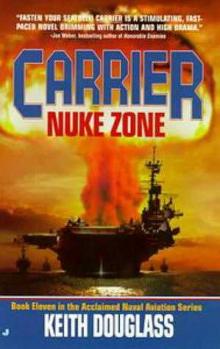 Nuke Zone c-11
Nuke Zone c-11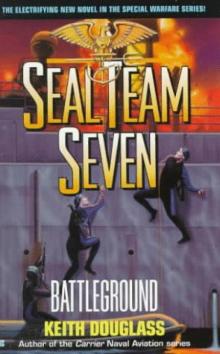 Seal Team Seven 6 - Battleground
Seal Team Seven 6 - Battleground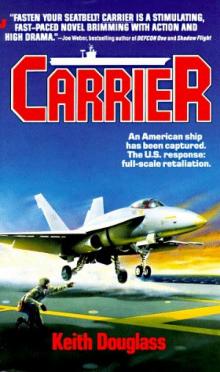 Carrier c-1
Carrier c-1 Island Warriors c-18
Island Warriors c-18 Afterburn c-7
Afterburn c-7 Terror At Dawn c-21
Terror At Dawn c-21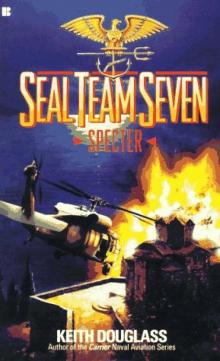 Specter sts-2
Specter sts-2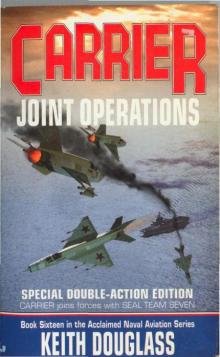 Joint Operations c-16
Joint Operations c-16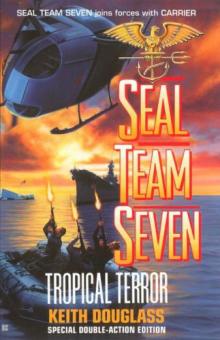 Tropical Terror sts-12
Tropical Terror sts-12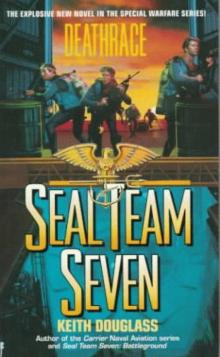 Seal Team Seven 7 - Deathrace
Seal Team Seven 7 - Deathrace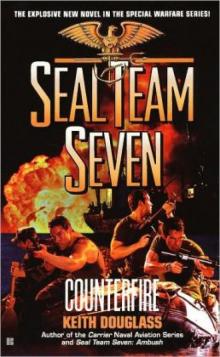 Counterfire sts-16
Counterfire sts-16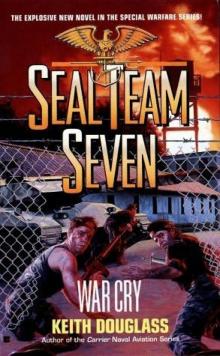 War Cry sts-9
War Cry sts-9 Chain of Command c-12
Chain of Command c-12 Brink of War c-13
Brink of War c-13 Armageddon Mode c-3
Armageddon Mode c-3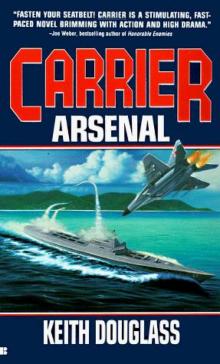 Arsenal c-10
Arsenal c-10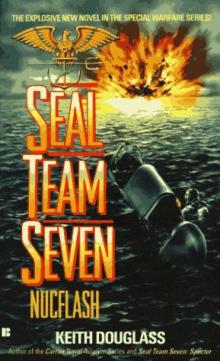 Nucflash sts-3
Nucflash sts-3 Arctic Fire c-9
Arctic Fire c-9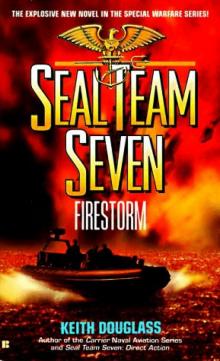 Firestorm sts-5
Firestorm sts-5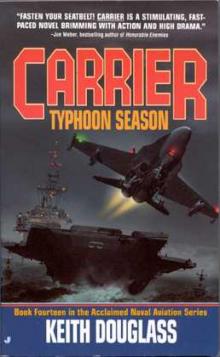 Typhoon Season c-14
Typhoon Season c-14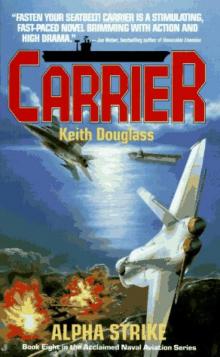 Alpha Strike c-8
Alpha Strike c-8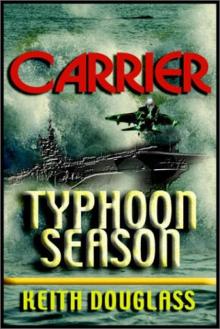 Carrier 14 - TYPHOON SEASON
Carrier 14 - TYPHOON SEASON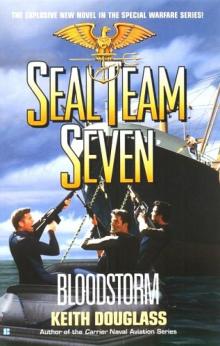 Bloodstorm sts-13
Bloodstorm sts-13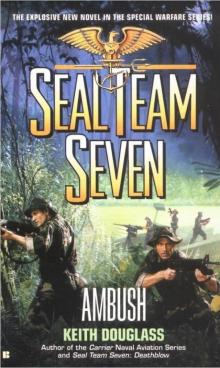 Ambush sts-15
Ambush sts-15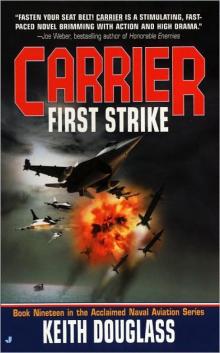 First Strike c-19
First Strike c-19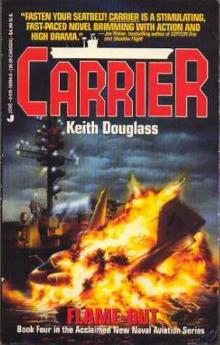 Flame Out c-4
Flame Out c-4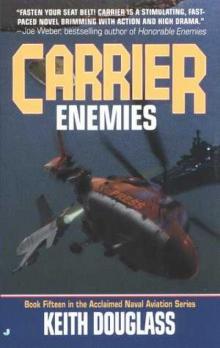 Enemies c-15
Enemies c-15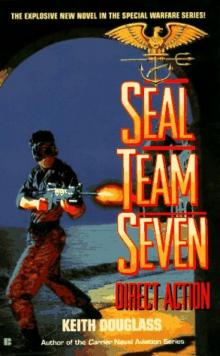 Seal Team Seven 04 - Direct Action
Seal Team Seven 04 - Direct Action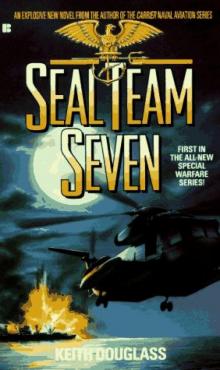 Seal Team Seven 01 - Seal Team Seven
Seal Team Seven 01 - Seal Team Seven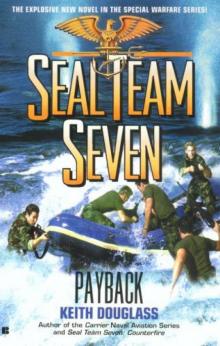 Payback sts-17
Payback sts-17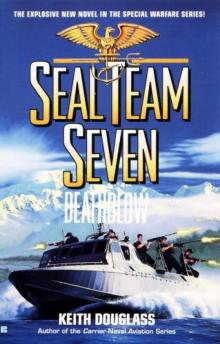 Death Blow sts-14
Death Blow sts-14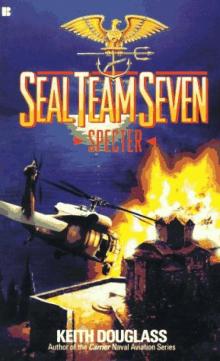 Seal Team Seven 02 - Spector
Seal Team Seven 02 - Spector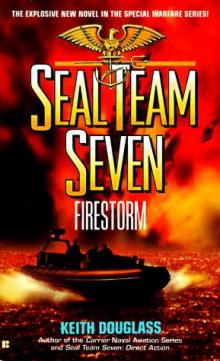 Seal Team Seven 5 - Firestorm
Seal Team Seven 5 - Firestorm The Art of War c-17
The Art of War c-17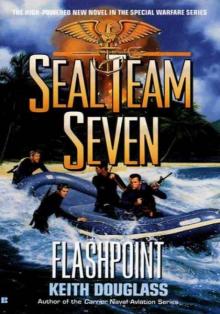 Flashpoint sts-11
Flashpoint sts-11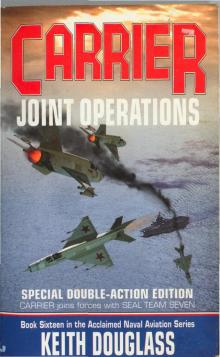 Carrier - Joint Operation Book 16
Carrier - Joint Operation Book 16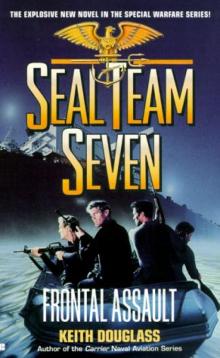 Frontal Assault sts-10
Frontal Assault sts-10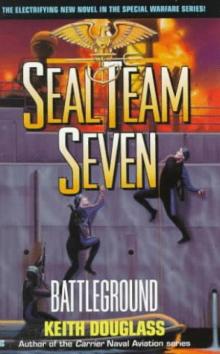 Battleground sts-6
Battleground sts-6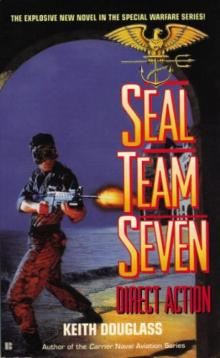 Direct Action sts-4
Direct Action sts-4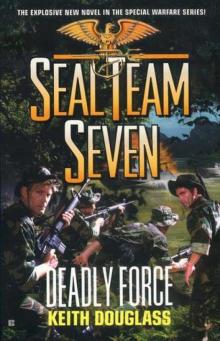 Deadly Force sts-18
Deadly Force sts-18 Carrier 13 - Brink of War
Carrier 13 - Brink of War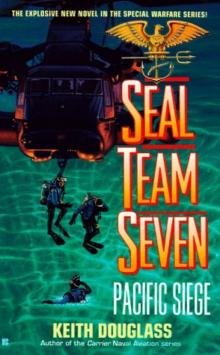 Pacific Siege sts-8
Pacific Siege sts-8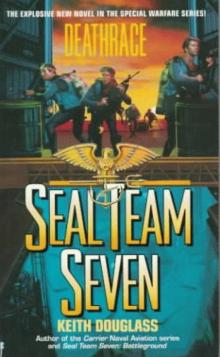 Deathrace sts-7
Deathrace sts-7